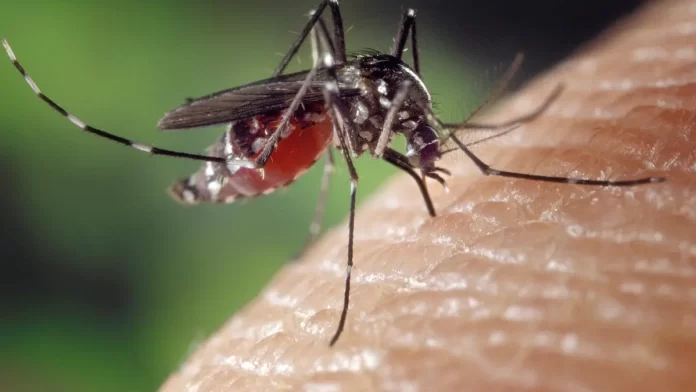Dengue cases are on rise across the world. The World Health Organization (WHO) anticipates a potential surge in cases this year, reaching record levels, primarily attributed to the impact of global warming, which creates favorable conditions for disease-carrying mosquitoes.
Dengue fever is a mosquito-borne viral infection that affects millions of people worldwide, primarily in tropical and subtropical regions.
Over the years, extensive research has been conducted to understand the complexities of this disease.
In this article, we’ll delve into ten scientific facts about dengue, shedding light on its transmission, symptoms, prevention, and future prospects for combating this global health threat.
Dengue Virus and its Types
Dengue is caused by four closely related viruses: DEN-1, DEN-2, DEN-3, and DEN-4, all of which belong to the Flavivirus genus.
These viruses are primarily transmitted to humans through the bite of infected female mosquitoes, primarily the Aedes aegypti and, to a lesser extent, Aedes albopictus species.
Prevalence and Global Impact
Dengue fever has become a significant public health concern in recent years.
The World Health Organization (WHO) estimates that approximately 390 million dengue infections occur annually, with approximately 96 million resulting in symptomatic disease. The incidence of dengue has surged in various regions, leading to considerable morbidity and mortality.
Dengue’s Range and Climate Sensitivity
Dengue transmission is highly sensitive to climatic conditions. It thrives in warm and humid environments, making it prevalent in tropical and subtropical areas.
However, as the planet’s climate changes, regions previously unaffected by dengue may now become at risk.
Symptomatology and Severity
Dengue infection can present in a spectrum of manifestations, ranging from mild flu-like symptoms to severe hemorrhagic fever and shock.
The common symptoms include high fever, severe headache, pain behind the eyes, joint and muscle pain, rash, and mild bleeding tendencies. Severe cases can lead to organ failure and even death.
Immune Response and Antibody-Dependent Enhancement (ADE)
Infection with one type of dengue virus typically provides lifelong immunity to that specific strain but only temporary immunity to the other three.
Moreover, subsequent infections with different strains increase the risk of severe dengue due to a phenomenon called Antibody-Dependent Enhancement (ADE).
ADE can exacerbate the disease by enhancing viral replication in certain immune cells.
Mosquito Vectors and Transmission Dynamics
Aedes mosquitoes are the primary vectors responsible for transmitting the dengue virus to humans.
These mosquitoes breed in clean water and are mostly active during the day. Efforts to control the spread of dengue often focus on reducing mosquito breeding sites and implementing vector control measures.
Diagnosis and Laboratory Tests
Diagnosing dengue fever involves various laboratory tests, including virus isolation, detection of viral RNA or antigens, and serological methods to detect antibodies in the patient’s blood.
Early and accurate diagnosis is crucial for appropriate patient management and timely public health interventions.
Prevention and Control Strategies
As there is currently no specific antiviral treatment for dengue, prevention plays a vital role in controlling its spread. Preventive measures include reducing mosquito breeding sites through environmental management, using mosquito nets and repellents, and promoting community awareness about the disease.
Dengue Vaccines: Progress and Challenges
Research on dengue vaccines has been ongoing for decades. Several vaccines have been developed and are being used in some countries.
However, achieving long-lasting immunity against all four virus serotypes remains a challenge. Ongoing research aims to improve vaccine efficacy and safety.
Future Outlook: Integrating Technology and Global Collaboration
As dengue continues to pose a significant threat to public health, researchers and health authorities worldwide are working together to combat the disease.
Advancements in technology, such as genetically modified mosquitoes and new diagnostic tools, show promise in controlling dengue transmission.
Global collaboration is essential to share knowledge, resources, and experiences in the fight against this mosquito-borne disease.
Dengue fever continues to be a major health challenge worldwide, affecting millions of people annually.
Understanding the scientific facts surrounding dengue, from its transmission to prevention and potential treatments, is crucial to mitigating its impact.
Through continued research, international cooperation, and community engagement, we can strive towards a future where dengue is no longer a global health threat.
